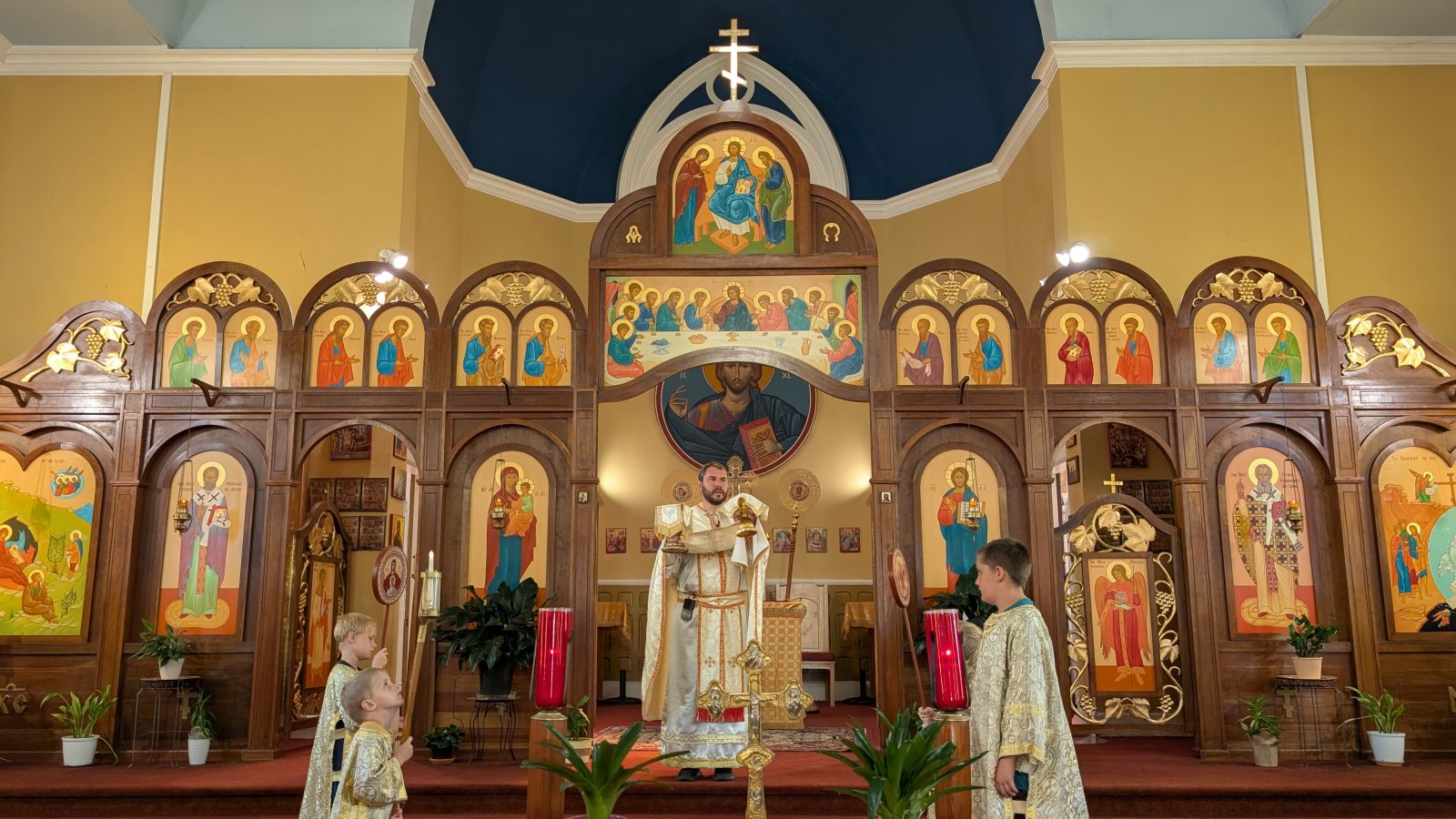Karibu………..Karibu sana by Judith Ernst, parishioner
The members of St. Athanasius the Great Byzantine Catholic Church (St. As), Indianapolis, Indiana welcomed Miriam Jemeli Kosgei, from Kenya, this past January 31-February 2 when she was visiting Judy Ernst. It was a trip of “firsts” for Miriam…..first time in the USA, first time to worship in a Byzantine Catholic Church, first time to experience snow as we know it in the mid-west, first time cooking for a group of hungry Hoosiers.
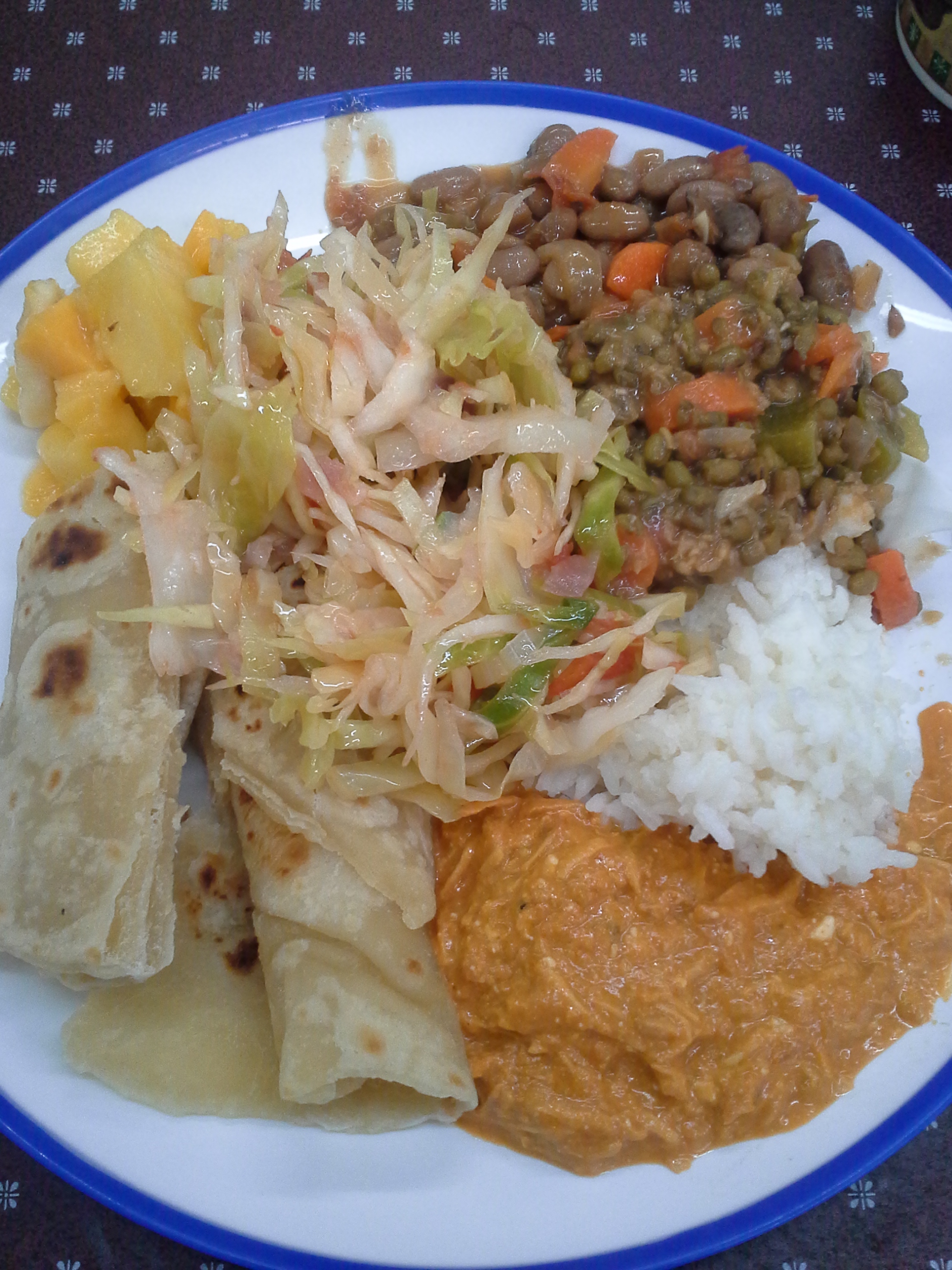
Yes, Miriam provided a Kenyan feast after the Divine Liturgy on both Saturday evening and Sunday morning. Everyone enjoyed the simple, yet very fresh, homemade meal that is the mainstay of Kenyan households. The menu included pinto beans, ndengu (pronounced “deng – oo”), chapatti (pronounced cha-pa-ti), rice, fried cabbage and a fruit salad of mangos, bananas, and pineapple.
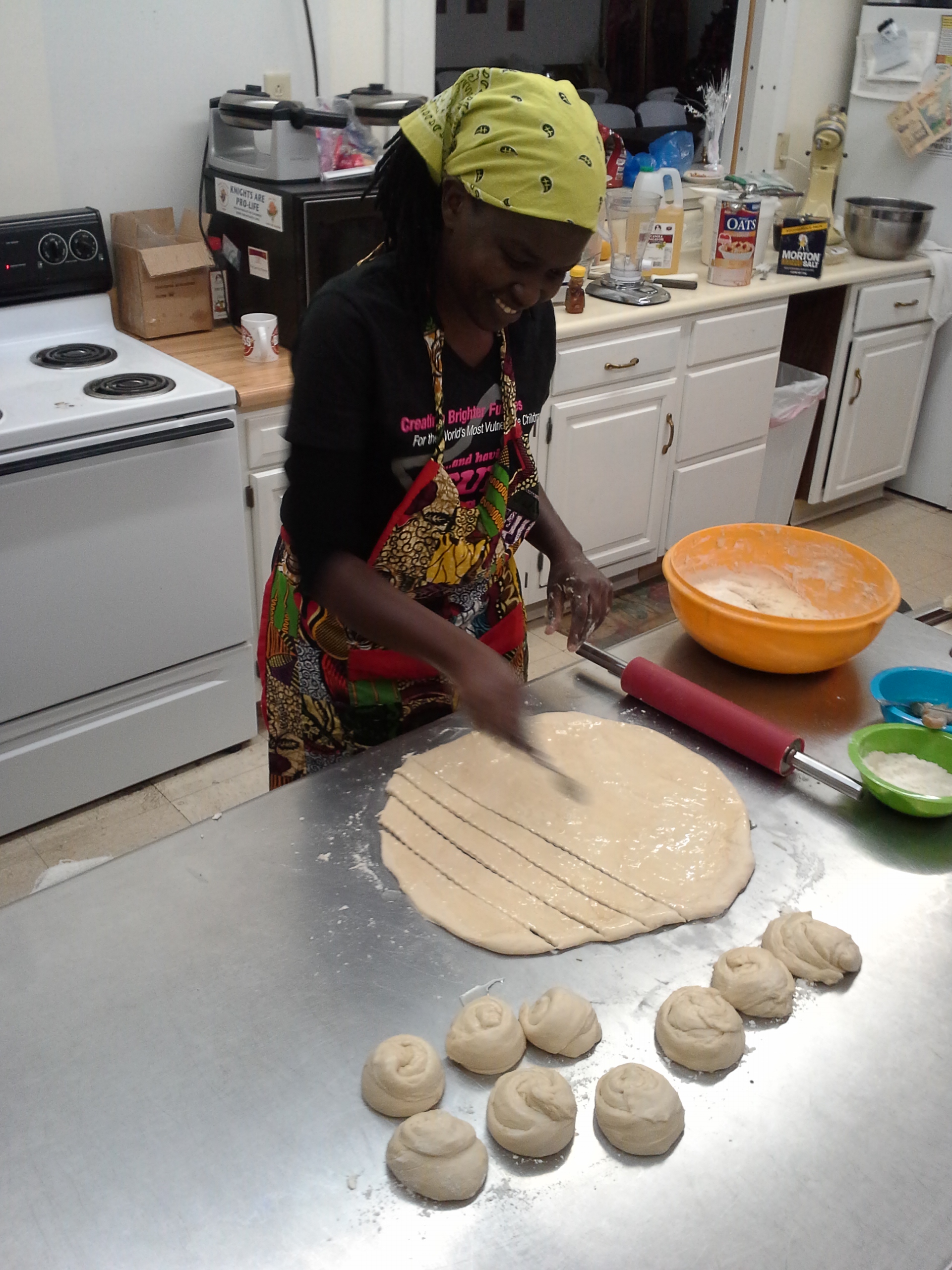
She returned on Saturday to boil the beans and then stir fry them in olive oil with sautéed onions, garlic, tomatoes, carrots, sweet green peppers and a sprinkle of chumvi (choom-vi) also known as salt. The ndengu, a small green legume, native to Kenya, were prepared in a like manner. Both received the secret ingredient that is traditional to Kenyan cuisine; a blend of spices spiked with coriander and cardamom.
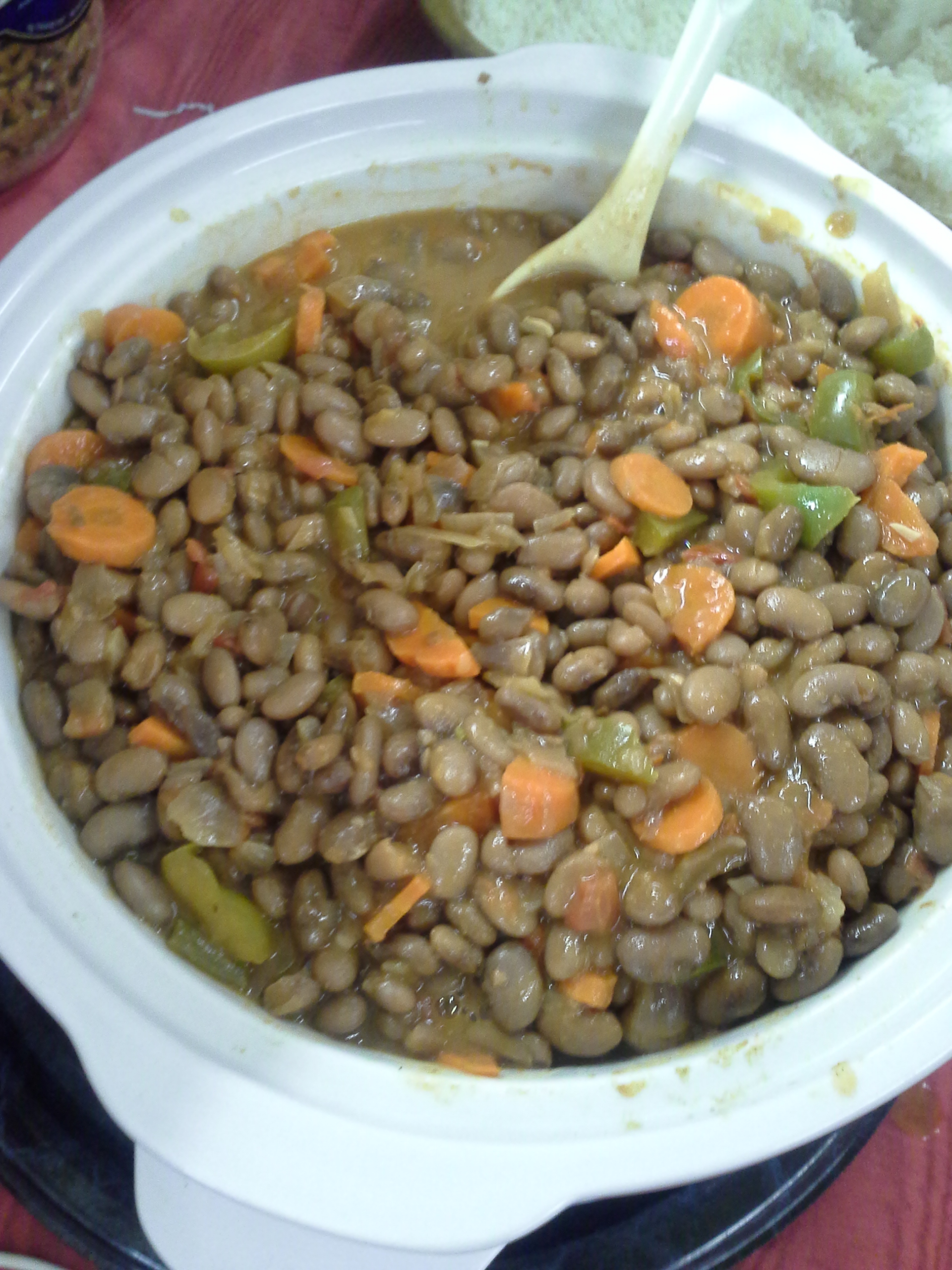
Pinto beans with other veggies
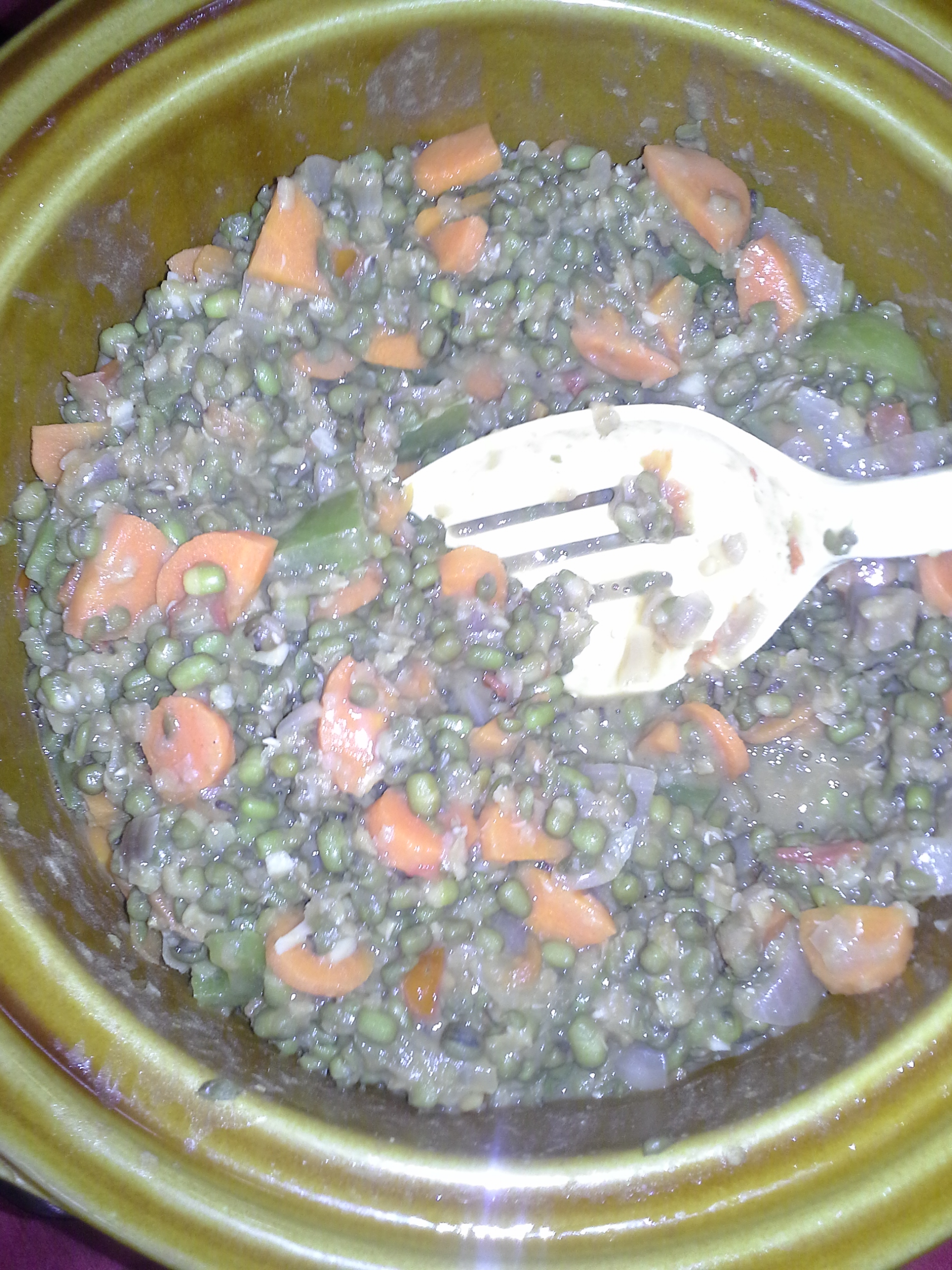
Judy met Miriam about 8 years ago while doing work in Kenya as a nutrition researcher and also volunteer work for Cherish Our Children International (COCI-pronounced “KOSI”). Over the years, Miriam has hosted Judy in her home and cooked her a similar Kenyan meal numerous times during her visits. This past year in April, 2013, Miriam became the first international member of the Board of Directors of COCI and she and Judy, also a Board member, split the cost of her ticket to travel to the board meeting held in Houston, Texas in January. COCI, a 501c3 organization committed to “Creating Brighter Futures for the World’s Most Vulnerable Children” celebrated in September of this year, 20 years of changing lives of the world’s most vulnerable children living in desperate situations. COCI supports a number of projects all over the world in which Kenya is one of them. Other countries include Serbia, Bosnia, Mexico and the United States. Miriam attended her first COCI Board meeting in Serbia in June, 2013 and met the children whose lives are impacted by COCI.
COCI has been in Kenya since 2000. Efforts there include the establishment of Children First Organization (CFO) a NGO that supported 17 orphans in Kisumu, the building of a pre-school with a capacity of 100 vulnerable children in Nyalenda slums in Kisumu which provided not only education, but also nutrition and medical care to the children, and supported 51 vulnerable children through an Outreach Program in Bondo. COCI expanded its efforts in Kenya in 2012 and now supports an SOS house, House No.3, in the new Kisumu SOS Village. The house like all other houses in the village has a capacity of 10 children. There are currently 8 children in house No. 3, two more are expected at any time to fill the remaining capacity. COCI fully supports the approach taken by SOS to provide a ‘mama’ in every house. Indeed it is impressive to know that ‘mamas’ remain mothers to these children throughout their lives.
During her board membership thus far, Miriam has spearheaded the development of COCI-Kenya, a newly forming NGO in Kenya that will allow Kenyan support for the Kenyan projects and programs. Miriam has established a COCI-Kenya Board of Directors and they have begun fundraising for the children in House No. 3 in the Kisumu SOS Village. When Miriam is not volunteering her time, she solves communication problems as an engineer for the leading internet provider in Kenya.
Judy shares “It was not until my third trip to Kenya that the light bulb went off in my head and I realized that Karibu pronounced (car-i-boo) has two meanings in Swahili. When one enters a home in Kenya, the host’s greeting is “karibu” which means “welcome….please enter my house”. Alternatively when one is thanked for a kindness extended, (asante in Swahili), the response is also “karibu” which means “you are welcome”. When someone says “asante sana” or “thank you very much” the response is “karibu sana” or “you are most welcome”. Karibu, in both contexts, were extended to Miriam.” First we welcomed her into our Temple and our Fellowship Hall and second we extended our “you are very welcome” (karibu sana) when she thanked us for allowing her to worship with us and to cook for us. Miriam mentioned that the highlight of her first trip to the US was the hospitality that she experienced at St. Athanasius and the opportunity to prepare a meal that everyone enjoyed eating.
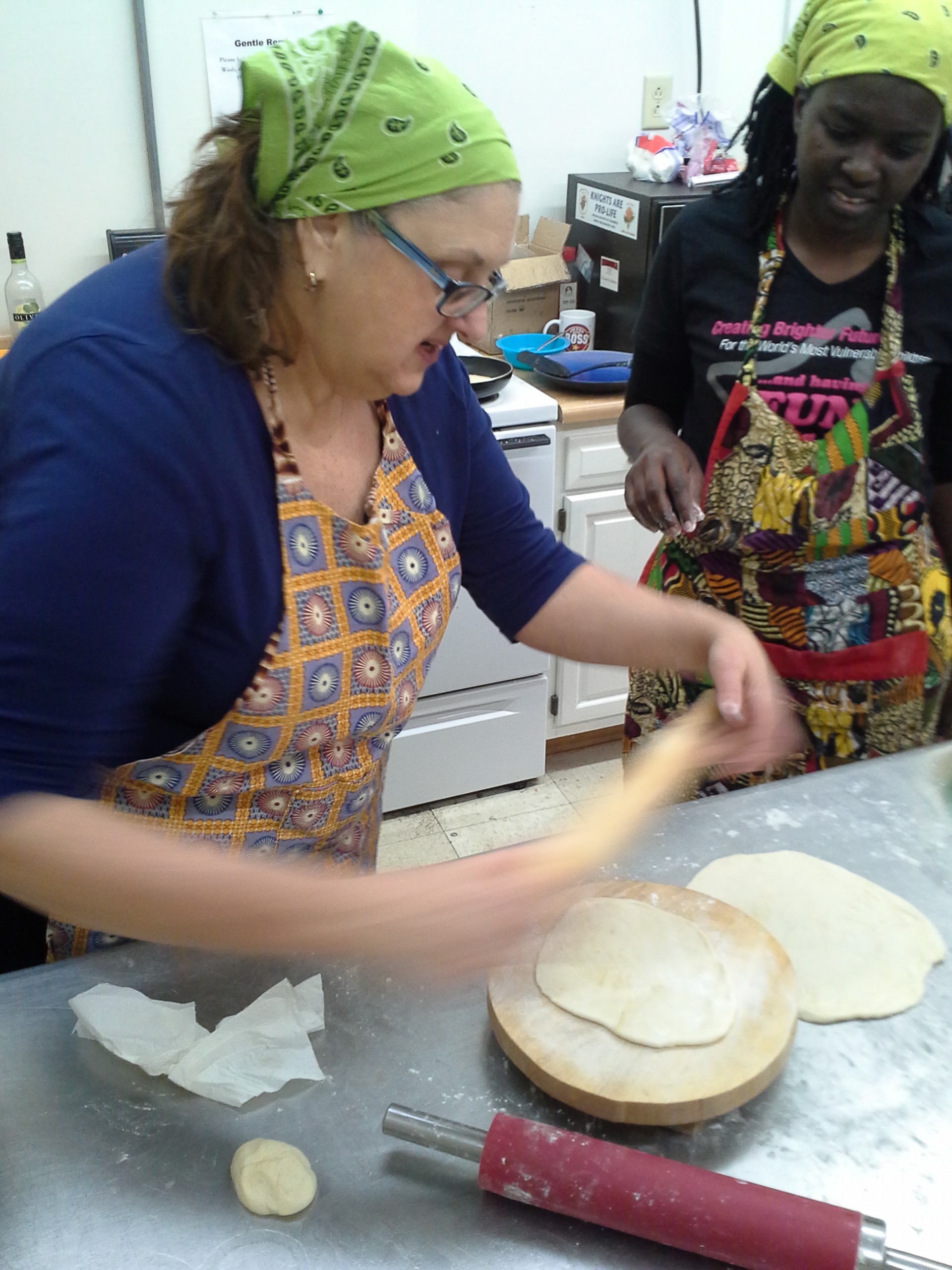
The article author rolling chapatti under the watchful eye of Miriam.
